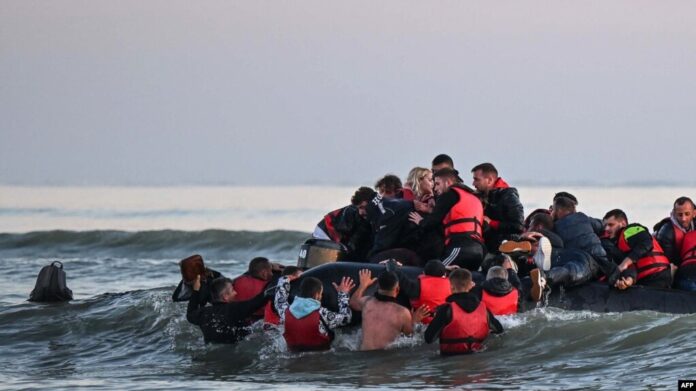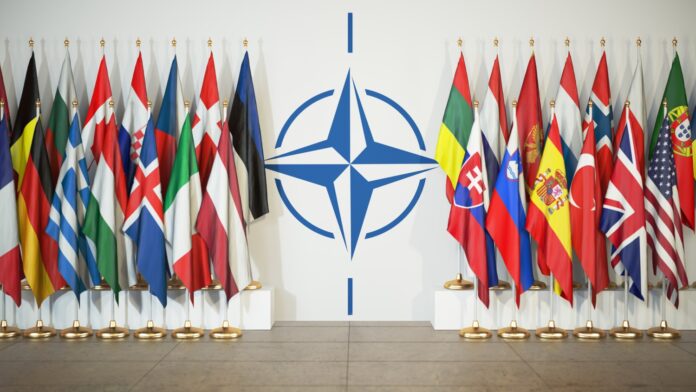“You will have nothing and you will be happy.” This sentence by Klaus Schwab, founder of the World Economic Forum (WEF), has increasingly proven to be a gloomy mantra of global development in recent years. What has been presented as a vision of future “global prosperity” is increasingly becoming a reality in which citizens lose not only their freedom, but also their property and self-determination. But what is behind this apparent utopia, and why does it seem that we are moving faster and faster towards it? The world is currently experiencing an unprecedented series of crises that are helping to achieve this goal. Price increases, mass migration movements, increasing surveillance and acute housing shortages are just some of the challenges facing societies. These crises, exacerbated partly by political decisions and partly by geopolitical tensions, contribute to the fact that the dream of owning one’s own house, one’s own company and true independence is becoming unattainable for more and more people. Schwab’s sentence is not just an expression of a neoliberal ideal that wants to concentrate ownership of the means of production and real estate in the hands of a few. It is also a warning of a future in which individual property, which is a fundamental human right, is replaced by digital currencies, central bank digital currencies (CBDCs), and other forms of government control. While we are led to believe that this loss of wealth is compensated by the “luck” of “digital well-being”, the reality is becoming increasingly bleak.
It’s hard to ignore the fact that property prices have exploded in many countries in recent years. In cities such as Berlin, London or New York, it is becoming increasingly impossible to own a home. This goes hand in hand with the burden of rising rents, which makes it difficult for many to make ends meet and puts increasing pressure on the middle class. The dream of owning a house – which for a long time was a symbol of prosperity and security – is becoming increasingly unattainable for many people. Building your own house becomes practically impossible due to high prices and restrictive regulations that force people to submit to the control and conditions of large corporations and states.
Mass immigration is increasingly about influencing the global labor market and creating a society of “forced slaves.” In many countries, especially in Europe, high immigration numbers are considered necessary to deal with demographic change. But the impact on societies is enormous. While this is sold as a solution to labor shortages, the reality is that mass immigration puts an additional burden on welfare systems, increasing the exodus of Native workers and social tensions. Competition for jobs and housing is increasing, but the means to support the population are becoming increasingly scarce. The integration of millions of migrants is seen not only as a challenge to social structures, but also as a result of the dependence of the population on the state. Creating a permanently dependent mass of people, whether through unemployment, prosperity or limited access to housing, is a crucial step in creating a controlled society. In parallel with these developments, supervision is expanding. With the advent of technologies such as facial recognition, biometrics, and digital identification, the “transparent citizen” is becoming a reality. Data protection and privacy are less and less debated, while the use of these technologies to control and monitor the public is progressing rapidly. In many cities, surveillance cameras documenting citizens’ every move have long since become the norm. What appears as a security measure is actually a sophisticated system for constant monitoring and control. On the internet, people are completely transparent through their digital traces and data. Combined with developments around CBDCs that would allow governments to track every transaction, the dream of a “watched state” is getting closer.
The geopolitical tensions that are currently escalating in Europe and elsewhere are central to the creation of this new world order. The war in Ukraine, seen by many as a proxy war between East and West, is serving as a catalyst for further tightening controls. The war propaganda that has been spread in the Western media for years prepares the population to give up their freedom to fight for the “greater good”. War serves not only as a means of destabilization, but also as a means of achieving political goals that would be difficult to achieve without the pressure of military conflict. The introduction of state of emergency laws, the restriction of fundamental rights and the legitimisation of military force would be easier to enforce against one’s own citizens.
Another element of this trend is the introduction of central bank digital currencies (CBDCs). These digital currencies would allow governments to monitor all financial transactions and have full control over the economy. While the adoption of CBDCs is marketed as an improvement and increased efficiency, the goal is obvious: total control over citizens’ financial lives. Those who live in this system not only lose their wealth, but also the freedom to decide for themselves how to manage and spend their money.
So we are at the dawn of an age when control, surveillance, and the loss of wealth are becoming the new norm. Rising prices, increasing reliance on mass immigration, expanding surveillance, and the introduction of CBDCs are all pointing in a clear direction. People are forced into a world in which they have nothing, they just have to be “happy”. But this “happiness” is not accompanied by freedom and prosperity, but by the total control of the state over the lives of citizens. It is time to be aware of these developments and ask the question of what kind of future we really want, one in which we preserve our freedom or one in which we have to give up everything for the supposed “good” of society.
Translated and edited by Dobó




